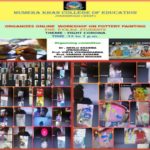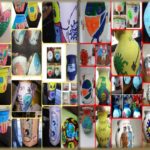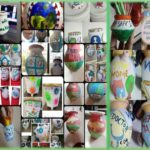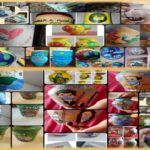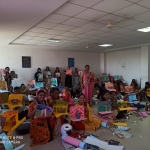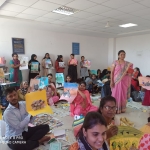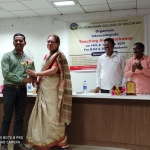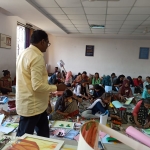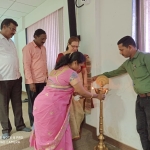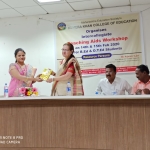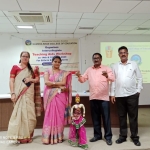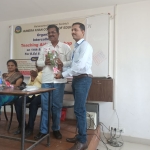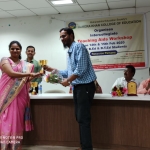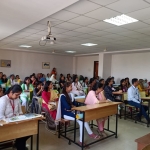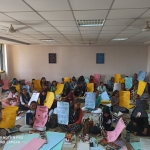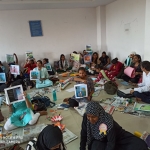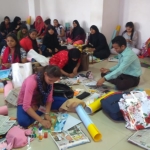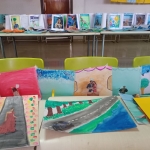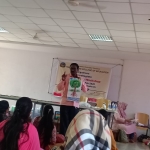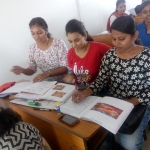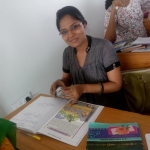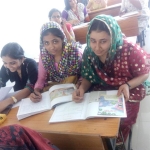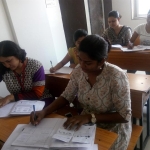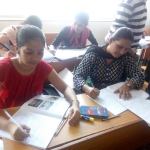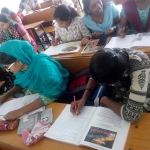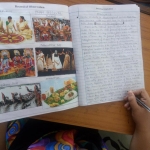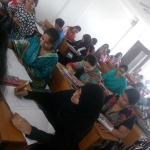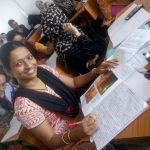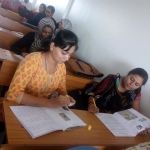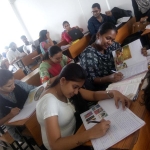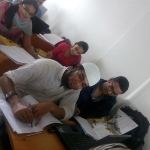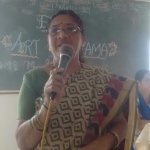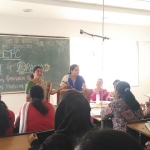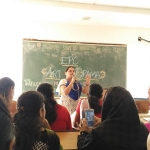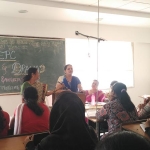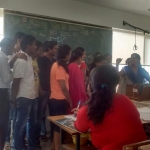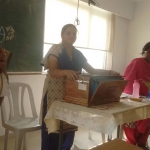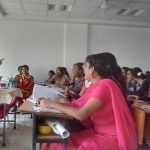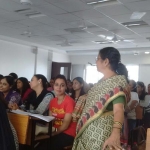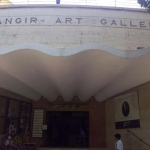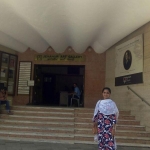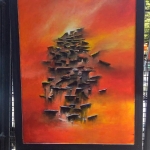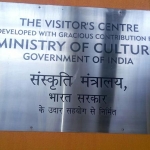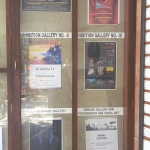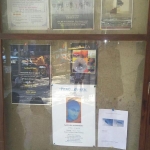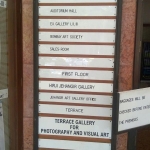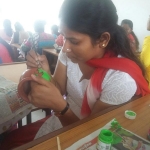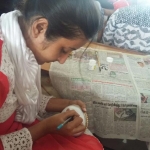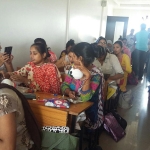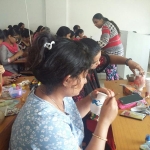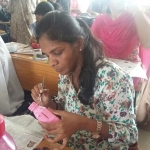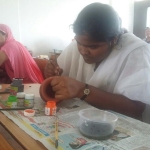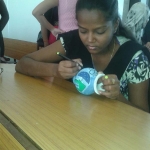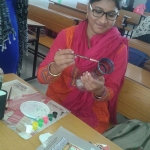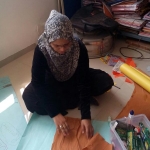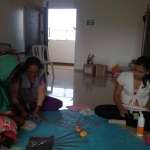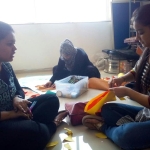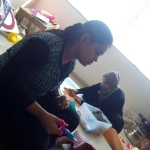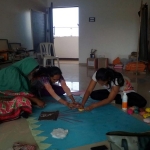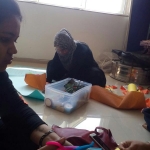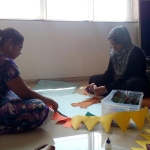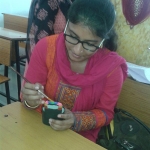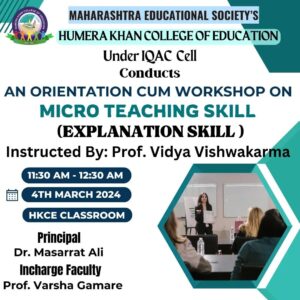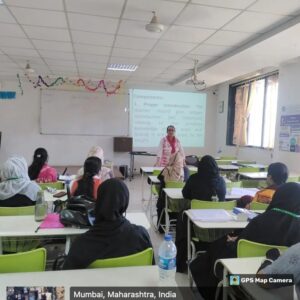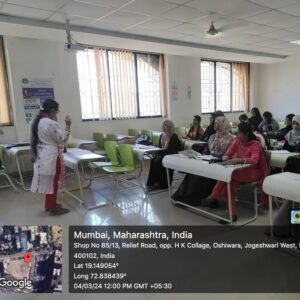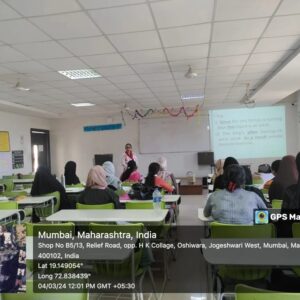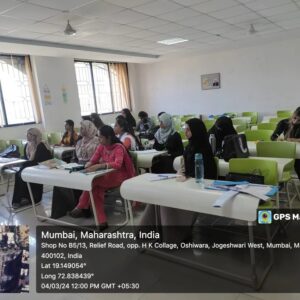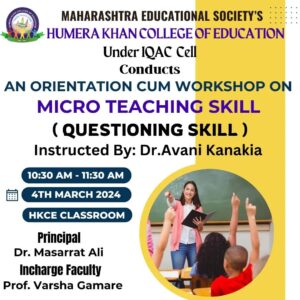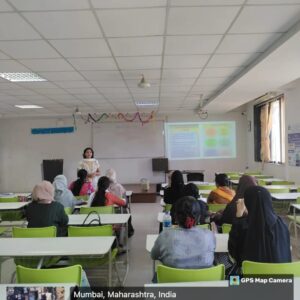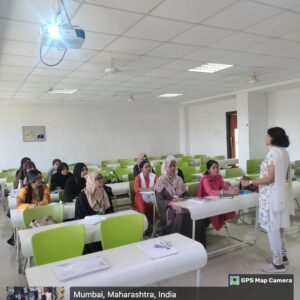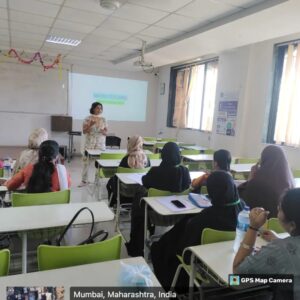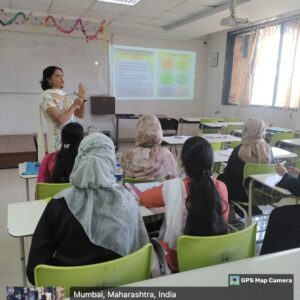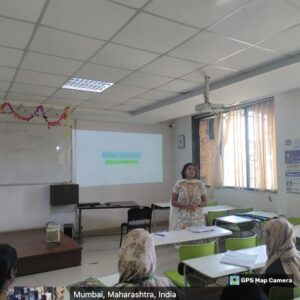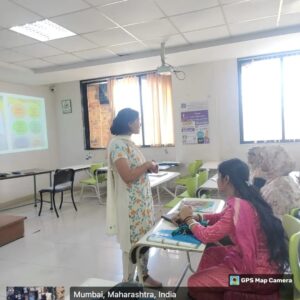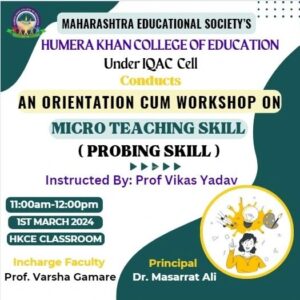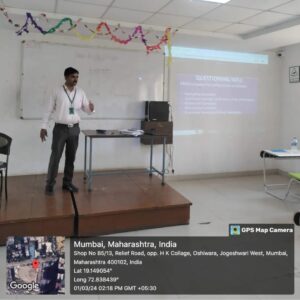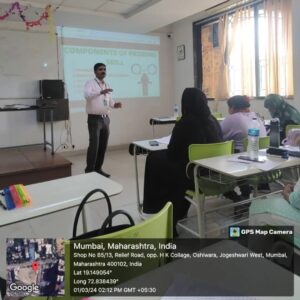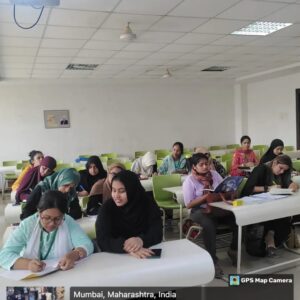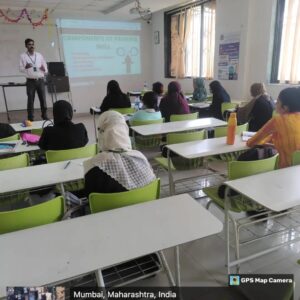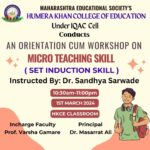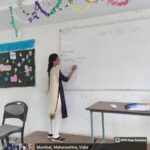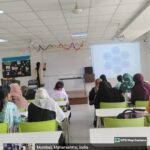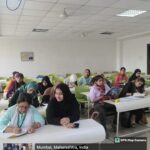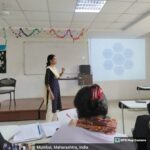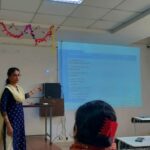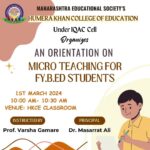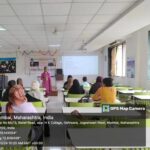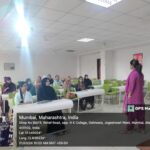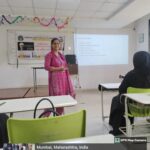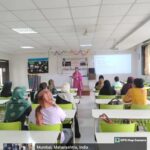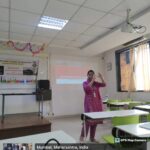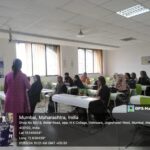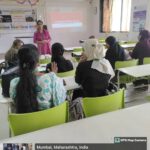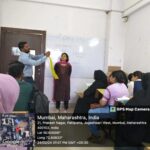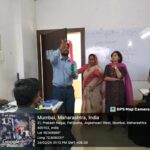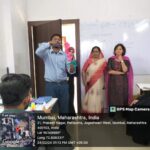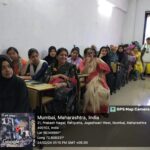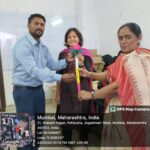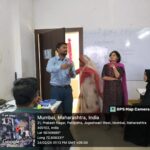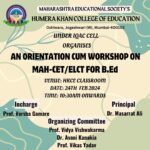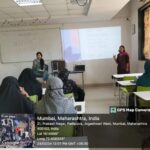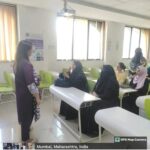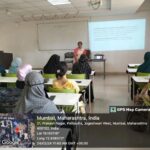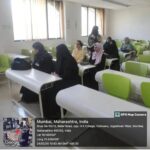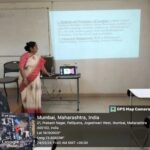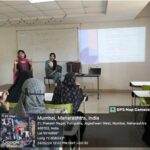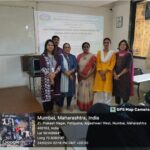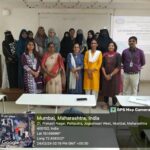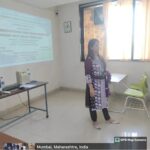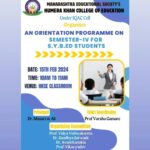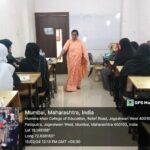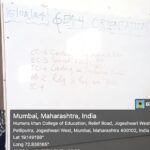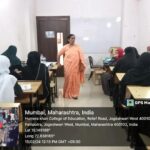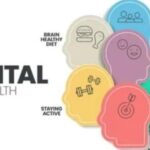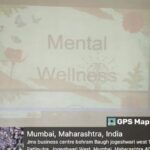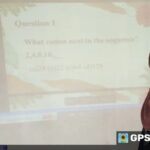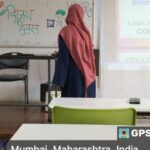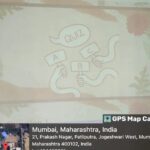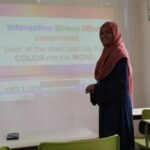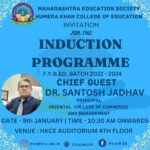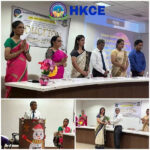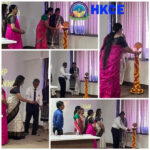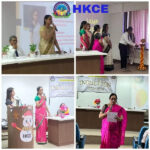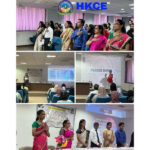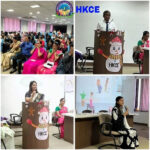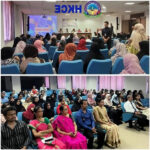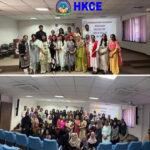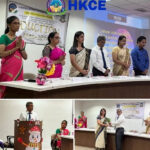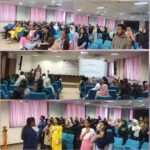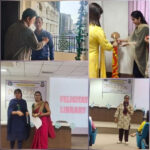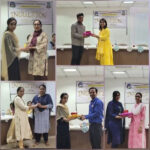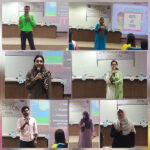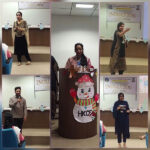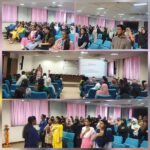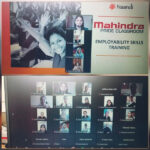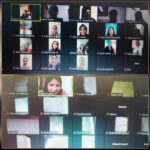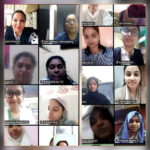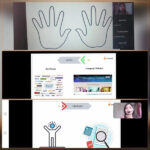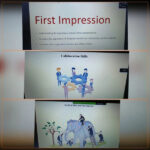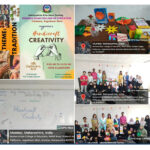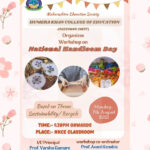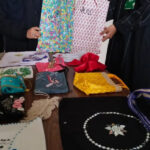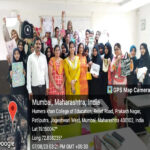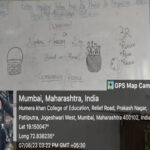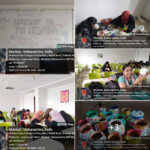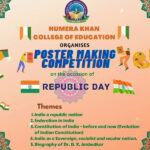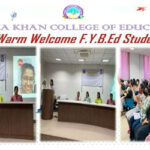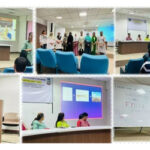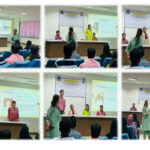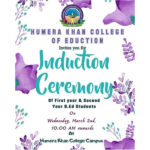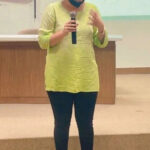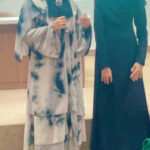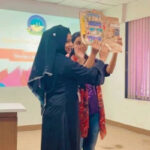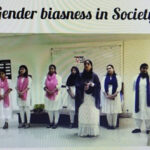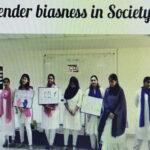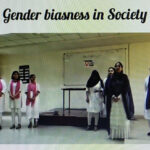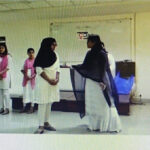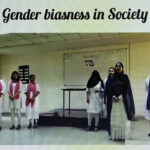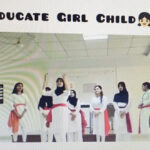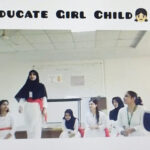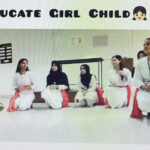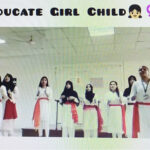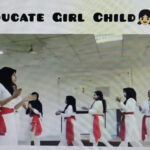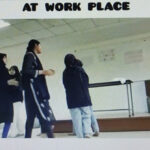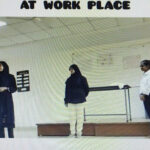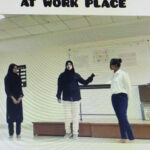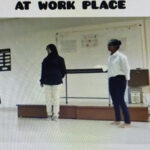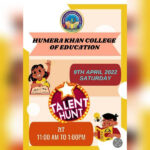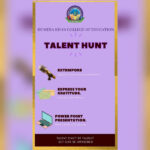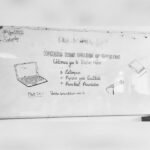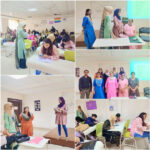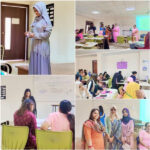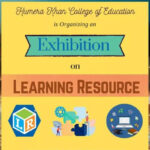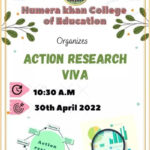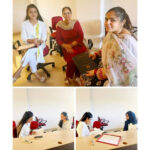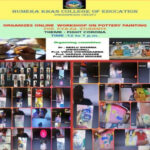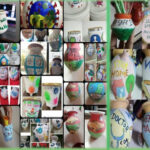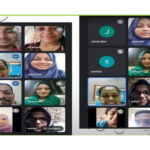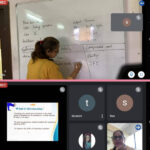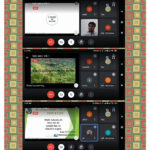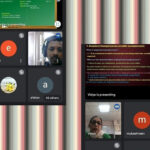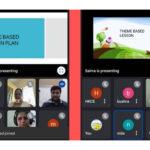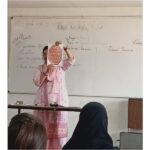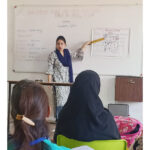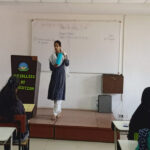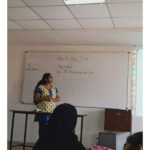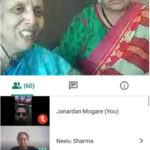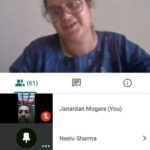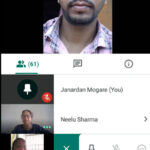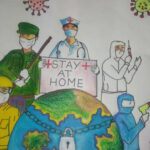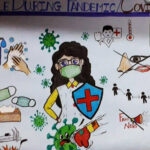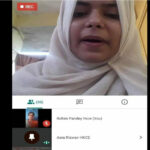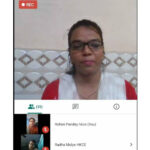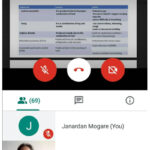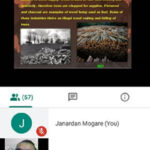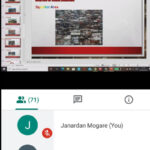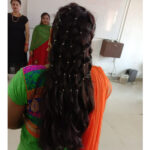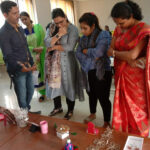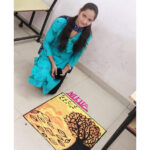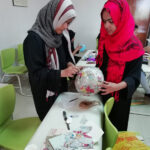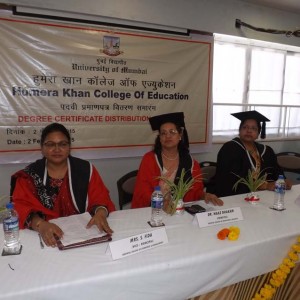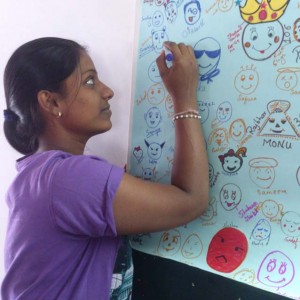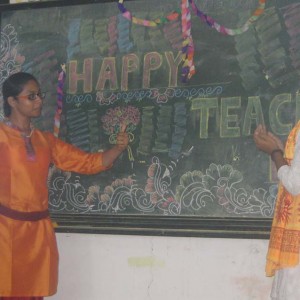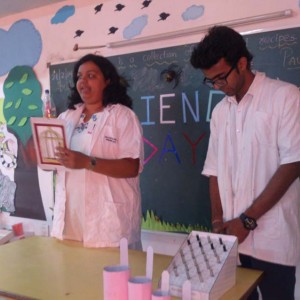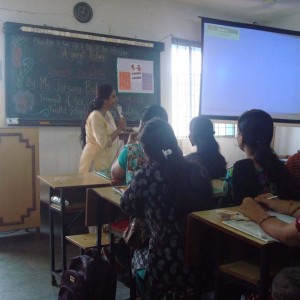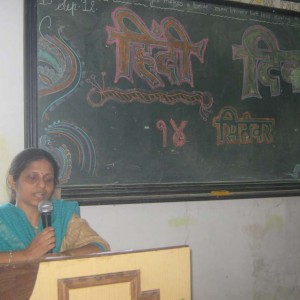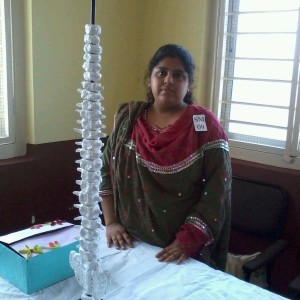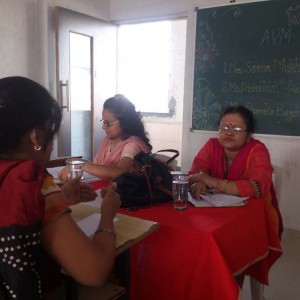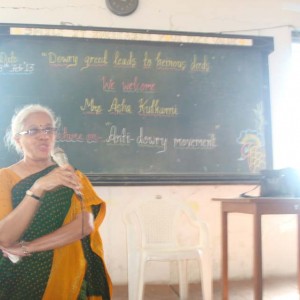Microteaching Explanation Skill Orientation Workshop
Date: 4th March 2024
Organizer: Humera Khan College of Education
Objective:
The objective of the workshop was to enhance participants’ explanation skills in the context of microteaching, enabling them to effectively convey information and concepts to students.
Workshop Highlights:
1. Introduction to Effective Explanation: The workshop began with an introduction to the importance of clear and concise explanations in the teaching process. Participants learned how well-structured explanations can enhance student understanding and engagement.
The workshop focused on the key components of effective explanation, including breaking down complex concepts into simpler parts, using appropriate examples and visuals, and providing real-world applications to enhance relevance.
Participants learned techniques for delivering explanations in a clear and organized manner. This included using logical sequencing, providing step-by-step instructions, and using visual aids to support understanding.
The microteaching explanation skill workshop provided participants with valuable insights and practical strategies to enhance their explanation skills in the teaching process. By mastering effective explanation techniques, educators can create a more engaging and impactful learning environment for their students.
Micro Teaching Skill
The workshop was conducted by our experienced educator Prof Dr. Avani Kanakia at Humera Khan College of Education who shared various strategies to enhance our questioning skills in the classroom.
During the workshop, we learned about the importance of asking open-ended questions to encourage critical thinking and active participation among students. We also explored different types of questions, such as probing questions to delve deeper into a topic and clarifying questions to ensure understanding.
One of the key takeaways was the significance of wait time after asking a question. It allows students to process the question and formulate thoughtful responses. We practiced incorporating wait time into our teaching approach to create a more inclusive and engaging classroom environment.
Additionally, we discussed the use of higher-order thinking questions to challenge students and promote deeper understanding. This involved crafting questions that require analysis, evaluation, and synthesis of information, rather than just simple recall.
Overall, the workshop provided us with practical strategies to improve our questioning skills and foster meaningful discussions in the classroom.
Orientation on Micro teaching for Fy.B.Ed Students
An Orientation Cum workshop on Micro teaching (Probing Skill) was organised at humera khan college of education for the Fy.B.Ed Students which was instructed by Our Prof. Vikas Yadav.
The microteaching probing skill workshop in college was a fantastic learning experience. Sir focused on developing effective questioning techniques to engage students and promote critical thinking. The workshop provided practical strategies and hands-on practice to enhance our probing skills. We learned how to ask open-ended questions, use follow-up questions, and encourage students to think deeper. Overall, it was an insightful and valuable workshop that will definitely benefit us in our future teaching endeavors.
Orientation on Micro teaching for Fy.B.Ed Students
An Orientation Cum Workshop on Micro Teaching Skill ( Set Induction Skill ) was organized by humera khan college of Education on 1st March 2024 which was instructed by our Prof Dr. Sandhya Sarwade under the guidance of our Chief Coordinator Prof. Varsha Gamare Madam.
The set induction skill orientation. This session was all about understanding the importance of set induction in the teaching process. We learned various strategies to grab students’ attention and get them ready to learn. It’s like setting the stage for an amazing learning experience! We explored techniques like using props, asking thought-provoking questions, or even sharing interesting stories to engage students right from the start.
Orientation on Micro teaching for Fy.B.Ed Students
An Orientation on Micro teaching for Fy.B.Ed Students was organized by Humera Khan College Of Education on 1st March 2024 in Hkce Classroom. It was conducted by our Chief Coordinator our Prof. Varsha Gamare.
During the micro teaching orientation, we were introduced to the concept of micro teaching and its significance in teacher training. We learned that micro teaching is a technique where we practice teaching in a controlled environment, focusing on specific skills or aspects of teaching. It’s like a mini version of teaching where we can make mistakes, get feedback, and improve our teaching abilities.
Overall, the micro teaching orientation skill in college were incredibly valuable. They provided us with the necessary knowledge and skills to become effective teachers.
Workshop on Best out of Waste
On 24th February, Humera Khan College Of Education organised a Workshop on Best out of Waste Using colorful paper, our guest Sunny Rai made candles and flowers. He introduced several different paper craft ideas to the students and encouraged them to make the best out of waste materials.
Orientation cum Workshop on MAH-CET/ELCT for B.Ed.
On 24th February, Humera Khan College Of Education organised an Orientation cum Workshop on MAH-CET/ELCT for B.Ed.
The students received instruction on exam pattern, eligibility criteria, important dates, syllabus, preparation tips, and more.
Orientation program for Sem IV
On 15th February 2024, an orientation program was conducted for the S.Y.B.Ed students who were commencing their fourth semester at Humera Khan College of Education by our Principal Dr. Masarrat Ali including our faculty members our Chief Coordinator Prof. Varsha Gamare, Prof. Vidya Vishwakarma, Prof Dr. Sandhya Sarwade, Prof Dr. Avani Kanakia Ma’am and our Prof Vikas Yadav. The purpose of this program was to provide essential information, guidance, and resources to the students to ensure a smooth and successful semester ahead.
Mindful Activities
Everyone is different, and it’s essential to find activities that resonate with you personally. Integrating a variety of activities into your routine can contribute to a holistic approach to mental wellness. If you’re dealing with mental health challenges, consider reaching out to a mental health professional for personalized support and guidance. F.Y.BED SEM I presented mindful activities which enhanced creativity.
INDUCTION PROGRAM FOR FY B.ED ( NEW BATCH 2022-24) 9 TH JANUARY, 2023
Humera Khan College of Education organised Induction program for FY B.Ed ( New Batch 2022-24) on 9 th January, 2023. Dr. Santosh Jadhav, Principal of Oriental College of Commerce and Management was the chief guest for the program.
ORIENTATION PROGRAM FOR FY B.ED ( NEW BATCH 2022-24) ON 10TH JANUARY, 2023.
Humera Khan College of Education organised Orientation program for FY B.Ed ( New Batch 2022-24) on 10th January, 2023.
NAANDI ORGANIZATION, MAHINDRA PRIDE CLASSROOM WHICH WAS HELD ON 24THJANUARY TO 4TH FEBRUARY, 2023.
Humera khan college of Education takes every effort to help students in innovative learning and enhancing their skills. It is a great pleasure to announce that our S.Y. students of HKCE successfully completed an online employability skills training program conducted by Naandi organization, Mahindra pride classroom which was held on 24thJanuary to 4th February, 2023.
Enriching experience throughout 10 days (40hrs) with sessions on interview, PPT making, digital identity, Critical thinking etc.
Special thank you to Manali Kadam Ma’am for sharing your expertise with our students which would be helpful for their career development.
HANDICRAFT CREATIVITY 2023
On 15th September Humera Khan college of Education conducted Handicraft activity at HKCE classroom for S.Y.B.Ed. students.
The objective of handicraft is to enhance and encourage the culture heritage of Northwest Cameroon through quality craft production. To promote the exportation of Cameroonian crafts.
All the students participated and bought their own decorative items and put their efforts in making their creative ideas. Some used waste materials and some used ready-made articles to make handicraft. It was a fun activity as we helped each other in the activity.
And feedback was giving by all the faculty members.
I/C Principal Prof Varsha ma’am, Prof. Vidya ma’am, Dr. Sandhya ma’am, Prof. Sana ma’am, Prof. Vikas sir and Prof. Avani ma’am.
NATIONAL HANDLOOM DAY 2023
National Handloom Day is a day when the country honours it’s rich tradition of handloom weaving and recognizes the contribution of weavers to the country’s cultural heritage.
This day he is also celebrated to commemorate the Swadeshi movement which was initiated in 1905.”
Humera khan college of Education, Jogeshwari(west) organizes National Handloom Day, based on the theme Sustainability/Recycle.
To spread the awareness about importance of 3’R—Reduce, Reuse and Recycle.
National Handloom Day is a day when the country honours it’s rich tradition of handloom weaving and recognizes the contribution of weavers to the country’s cultural heritage.
This day he is also celebrated to commemorate the Swadeshi movement which was initiated in 1905.”
Humera khan college of Education, Jogeshwari(west) organizes National Handloom day, based on the theme Sustainability/Recycle.To spread the awareness about importance of 3’R—Reduce, Reuse and Recycle.
POT PAINTING 2023
Life is a great big canvas and you should throw all the paint on if you can.
-Danny Kaye
Humera Khan College of Education organised a workshop on POT painting to where students showcase their creativity along with messages and their thoughts on pot with colour and brush.
The theme for POT painting were “Literacy” and “Adopt healthy life”.
POSTER COMPETITIONS 25TH JANUARY
Humera khan college of education oraganied poster competitions on 25th January 2022.
INAUGURATION OF NEW BATCH 2021-23 1ST MARCH
Humera khan college of education* welcome F. Y. B. Ed student new academic batch 2021-23
INDUCTION FUNCTION 2ND MARCH
Humera khan college of education Organised induction function for F. Y. B.Ed students (Batch 2021-23).
STREET PLAY 9TH APRIL
Street play on GENDER BIASNESS IN SOCIETY
Gender bias exists in every aspect of society—from the workplace to the political arena. The gender gap affects our children’s education, the size of the paycheck we bring home, and why women still lag behind men in certain careers.
LADKA LADKI EK SAMAAN EK SAMAAN EK SAMAAN
STREET PLAY ON EDUCATE GIRL CHILD
Education of women leads to improved self-esteem and give them more opportunities by which they feel more confident and hence can free themselves and educate themselves on ill practices and society imposed restrictions and raise voice against it since now they can survive on their own and have logical understanding that these practices should not exist.
STREET PLAY ON GENDER DISCRIMINATION AT WORKPLACE
In an age where we talk about equal rights for both men and women, there are still occurrences of people being discriminated against because of their gender at workplace. People should realise that gender discrimination at workplace is a serious form of employment discrimination which should not be discharged.
TALENT HUNT PROGRAM 9TH APRIL
A Talent Hunt was organised for the FY.Bed students at the Humera khan college of education by our principal Dr. Neelu Sharma ma’am.
There were active participation in all the activities by FY.bed students. Participating helped in better understanding of the hidden talents of the students.
All thanks to the SY.bed council members who managed the event very well and ofcourse our faculty members.
EXHIBITION ON LEARNING RESOURCES 23 APRIL
Humera khan college of education Organised EXHIBITION ON LEARNING RESOURCES on 23 April
ACTION RESEARCH VIVA 30 APRIL
Humera khan college of education Organised Action Research Viva for S.Y.B.Ed Batch 2020-21. Guest of Honour was Prof. Neha Sharma, Academic in-charge of Institute Of Management And Research.
Pot Decoration 11 May 2021
Art is an attempt to create a more humane world in addition to the real world.
With the COVID-19 pandemic on the rise, universal safety precautions are urgently needed. Keeping this in mind, Humera Khan College of Education organized a pot decoration/painting event for F.Y.B.Ed students on May 8th on covid 19 awareness, where participants had to decorate/paint pots with hard-hitting slogans, highlighting the importance of safety measures in preventing the spread of covid-19.
Fighting Corona and Coronavirus warriors were the themes. Students demonstrated their artistic abilities by creating a variety of decorative pots. Students took part with zeal and enthusiasm in spreading the message of Covid 19 and paying tribute to the front liners who are helping to save the world during this difficult time.
The students thoroughly enjoyed the activity, which was overseen by all the professors and our principal.
Orientation for Educational Management 16 June 2021
Prof. Janardhan M. Sir course orientation ” for semester- II educational management”
Discuss about objective and module of this subject.
Provide valuable information how education management is useful in teaching field.
Orientation for Micro-Teaching 18 June 2021
Prof. Dr. Neelu Sharma gave a lecture on Micro-teaching. She introduced techniques of teaching and lesson planning. It gave the students more in-depth knowledge about the preparation which a teacher must do before her class.
Demonstration of all subjects of Pedagogy 29 July 2021
A demonstration of all subjects of Pedagogy was conducted at Humera Khan College of Education by our professors as well as Ex-students.
Orientation and Demo Programme for Internship 18 November 2021
Humera Khan College of Education organized an Orientation and Demo Programme for the upcoming internship of 11 weeks. We thank the ex-students who gave exceptionally great demos. It was a learning experience for the students.
Demonstration Lessons 21 January 2020
Humera Khan College of Education, Jogeshwari organized method wise demonstration lessons for students of F. Y. B. Ed.
Programme in Remembrance of Great Indian Personalities 3 August 2020
Humera Khan College of Education and Oriental college of education and research jointly hosted a programme to remember the great personality on their centuries. 100th death anniversary of Lokmanya Tilak and 100th birth anniversary of Annabhau Sathe.
Professors and students gave information about these personalities and spread awareness about their work.
Elocution & Poster Making Competition 15 August 2020
Humera Khan College of Education conducted Elocution and Poster competition on 15th August on the occasion of Independence Day. Students actively responded to the event and made it a great success.
Demonstration of Theme Lessons 25 August 2020
To enable students to understand what is theme based teaching and how to prepare and execute lesson based on theme, demonstration lessons are conducted by faculties of HKCE in collaboration with the faculties of OCER Andheri.
Talents Search 28 November 2019
To identify and develop the hidden talent of B. Ed. students which will further enhance their teaching proficiency, Humera Khan College of Education organised “Talent Search” event for B. Ed. students. The students come with various talents… the highlights were T-shirt Painting, Mehndi, Rangoli, Dance, Singing, Mimicry, Salad Decoration, Tattoo making and so on.
- Date of commencement of the 1st Semester Class Test(B.Ed) 1st December 2015
- Date of commencement of the 1st Semester (B.Ed) University Examinations 16th December 2015

